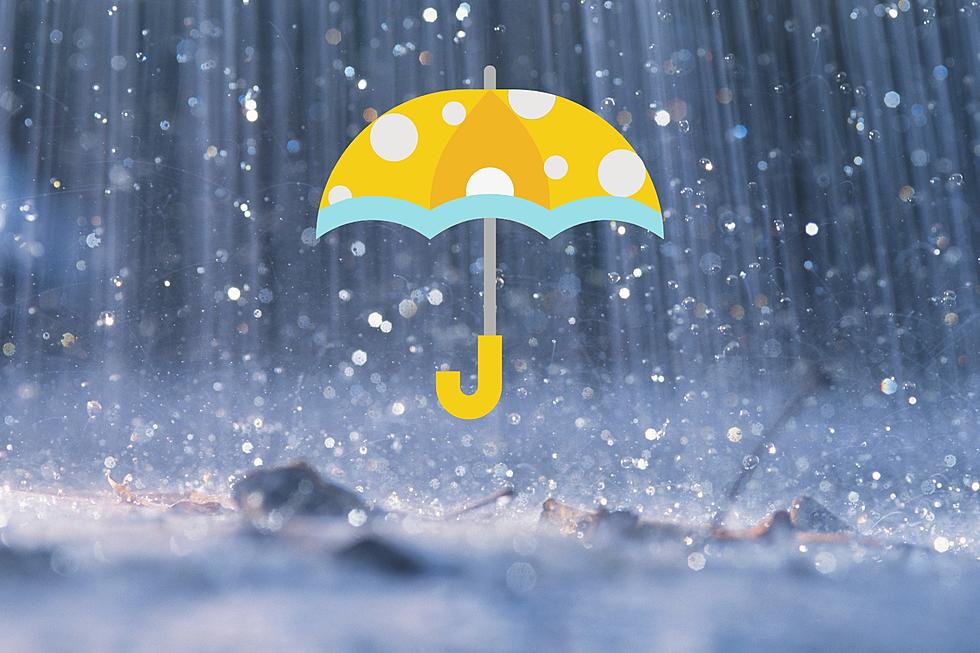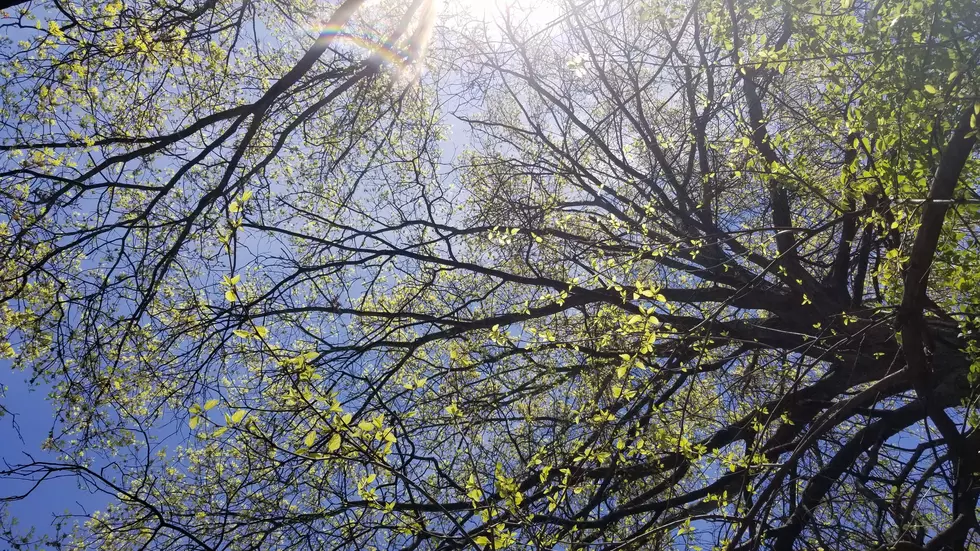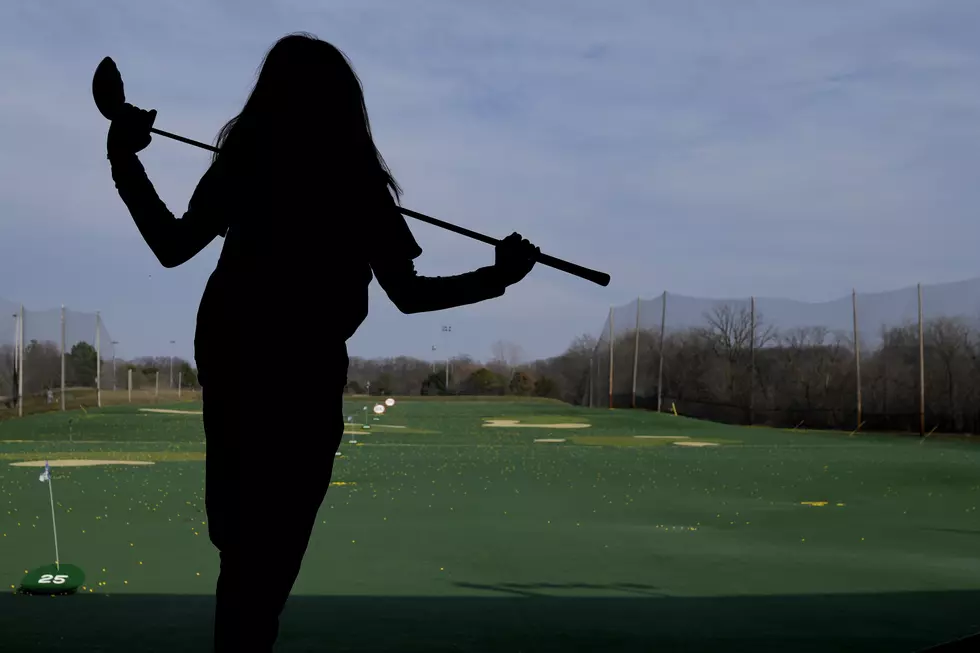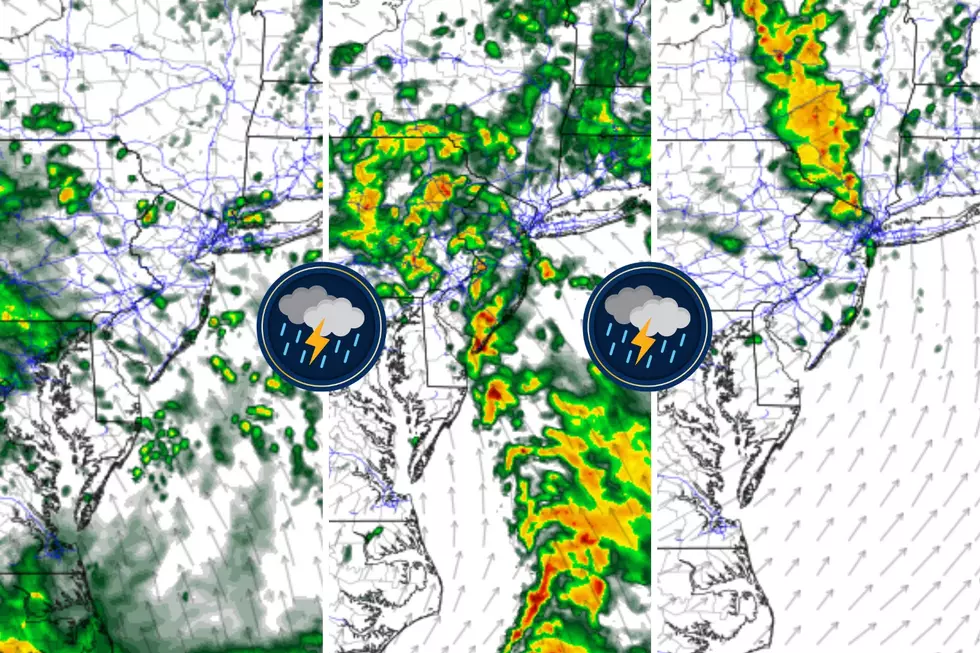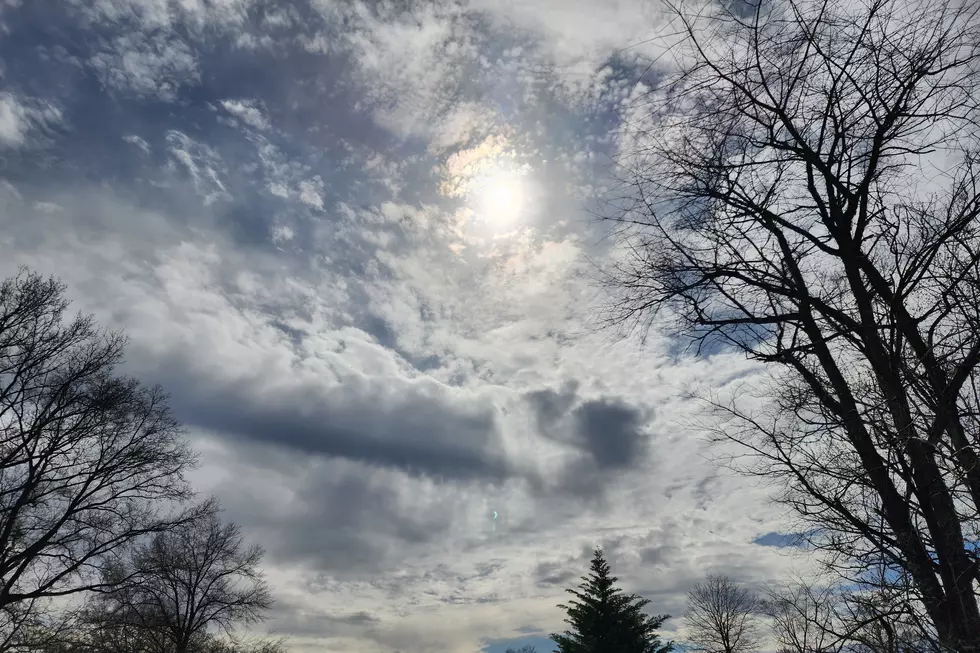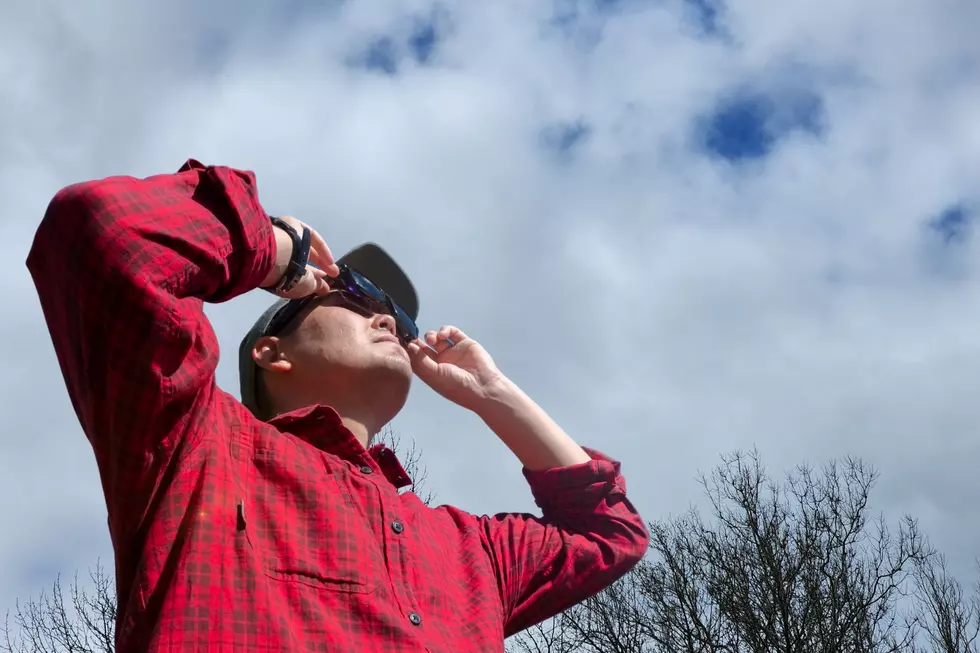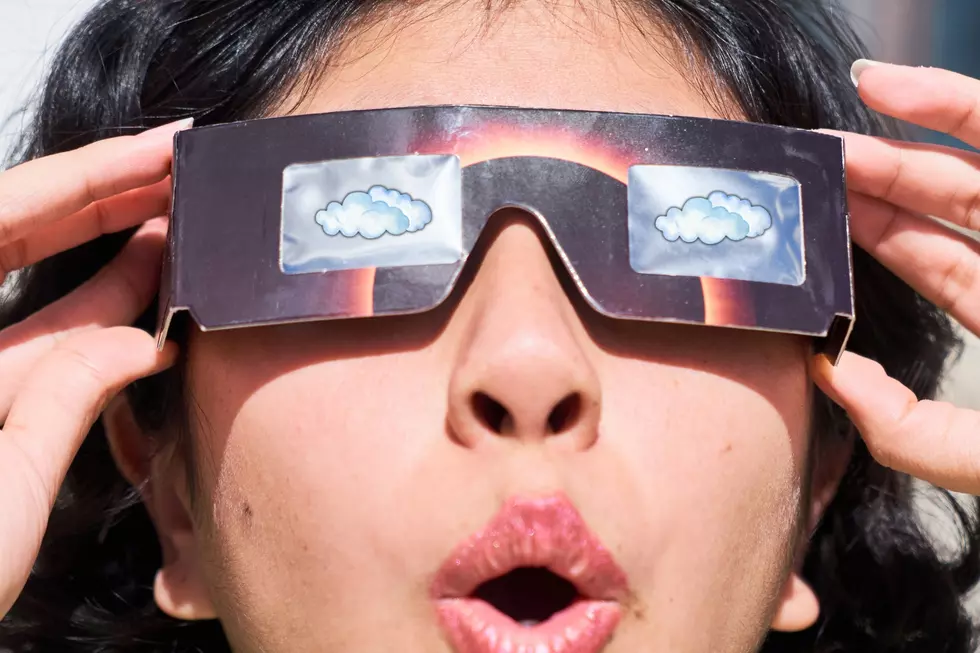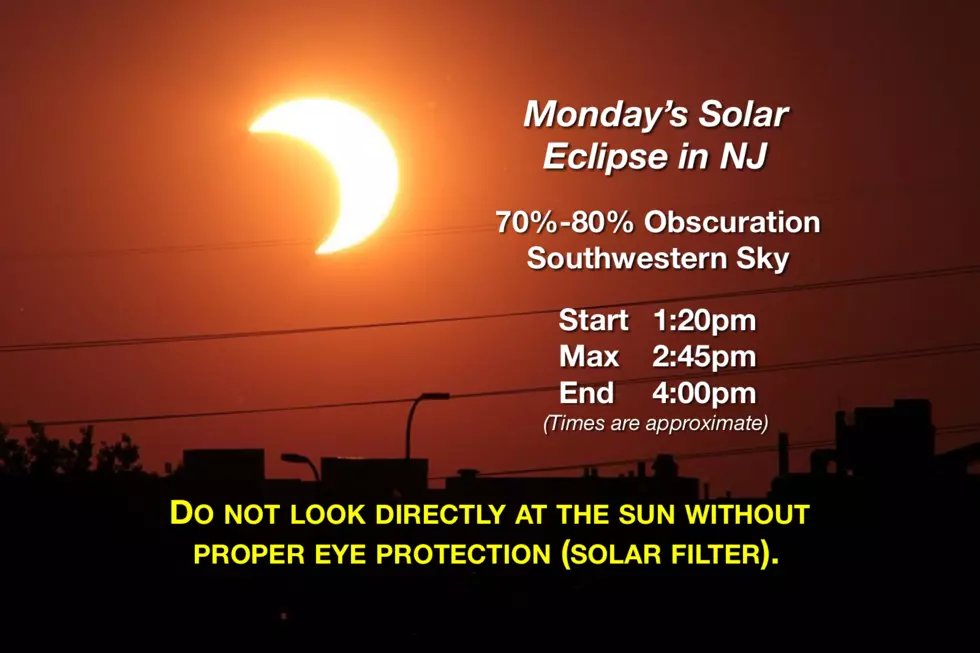
Solar eclipse mania! What NJ sungazers really need to know
Monday's celestial show will be the first solar eclipse visible in New Jersey in over two decades.
What is a solar eclipse?
One of the solar system's most amazing natural displays! A solar eclipse occurs when the moon passes directly between the sun and the earth, casting a shadow and blocking out part of the sun for part of the world.
In other words, a solar eclipse is Sun-Moon-Earth (in that order). In contrast, a lunar eclipse is Sun-Earth-Moon.
Why should I care?
Solar eclipses actually occur several times each year, visible over varying parts of the globe. The last one happened less than six months ago, on February 26, 2017. We couldn't see it here in New Jersey, as it was visible only in the southern hemisphere. Furthermore, it was an annular solar eclipse, meaning the moon appeared much smaller than the sun, so it didn't create a complete shadow.
The August 2017 eclipse is particularly rare and special for several reasons:
1.) It is a total solar eclipse, which last occurred across the southern Pacific Ocean on March 9, 2016.
2.) It will be partially visible in New Jersey, which hasn't happened since the annular eclipse of May 10, 1994.
3.) The path of totality passes directly over the continental United States, which hasn't occurred since February 26, 1979.
The next total solar eclipse visible in the lower 48 will occur on April 8, 2024. Book your plane tickets and hotel rooms now, as the path of totality will stretch only from Texas to Maine (including part of western and central New York). New Jersey will be about 90% dark for that one.
Geography?
The path of totality will stretch from Oregon to Georgia. For New Jersey, this will be a partial eclipse, with about 70 to 80 percent of the sun covered. The further southwest you are in NJ, the more shadow you'll see.
Please keep your expectations realistic: The sun will NOT be totally blocked out, and it will NOT get dark as night here. Sorry, you'll have to travel way south or west for that.
When?
Monday, August 21, 2017. According to NASA, the eclipse start time for New Jersey falls between 1:20 p.m. and 1:24 p.m. Maximum eclipse is expected between 2:42 p.m. and 2:47 p.m. And the sun will return to normal between 3:59 p.m. and 4:04 p.m.
Where to look?
The sun will progress from almost due south (about 190 degrees) to west-southwest (about 250 degrees) over the course of the eclipse.
At maximum eclipse, you'll want a clear view of the southwest sky (225 degrees on the compass). If you want to get technical, the sun's elevation will be about 54 degrees — a little above the halfway point between the horizon and directly overhead.
Do I really need those funky eclipse glasses?
You should never stare directly at the sun. It is hot, it is bright, and can cause significant damage to your vision.
Therefore, you should never ever stare directly at the sun during a solar eclipse. (Well, except for the few minutes of "totality," but that will not occur in NJ.)
So, yes. You absolutely need eye protection if you're going to view Monday's eclipse directly, or else you risk serious eye damage. The easiest solution is to pick up a pair of special "eclipse glasses". There are lots of fakes and scams out there — be sure to look for the magic ISO specification number 12312-2. And if your solar filter is in any way scratched, punctured, or torn, experts say it's no good — throw it out.
Eclipse glasses are becoming tough to find, but you might get lucky. It's probably too late at this point to order online (of course, many of those retailers are sold out too). Some local libraries, museums, and planetariums have a limited supply to give away.
Will a welding helmet work?
Yes, but only Class 12 and above would be safe to view the eclipse.
What about regular sunglasses?
Nope, not even close to being dark enough.
Can't find eclipse glasses?
One option is to make a pinhole eclipse viewer, which you may have done in science class as a kid. Honestly, I feel like watching the solar eclipse through this contraption would be pretty lame. But it is an easy build, and indeed a totally safe way to watch the eclipse. https://eclipse2017.nasa.gov/how-make-pinhole-projector-view-solar-eclipse
Or you can build a sun funnel. Neat concept, but only if you have a telescope.
Another totally safe and easy option is to check out NASA's high-quality live stream of the eclipse.
Can't I just watch through my phone or camera?
There have been rumors around the internet that pointing your smartphone or camera at the eclipse will cause irreparable damage to the lens and internal sensors. False.
However, if you attempt to take an unfiltered photo of the eclipsing sun, it probably won't come out very well (overexposed). In addition, there's a danger that you accidentally look at the sun itself as you're aiming the camera. And that could lead to the same degree of eye damage mentioned above.
If you are looking to take a photo or video of the eclipse, you'll need a filter for best results. There are special filters available for both cameras and phones. Or you could try putting your eclipse glasses over the lens as a makeshift filter!
Will it be safe to go outside during the eclipse?
Absolutely. Just don't look directly at the sun without eclipse glasses.
Will the weather be affected by the eclipse?
Yes! Solar radiation will drop significantly throughout the eclipse event. And the thermometer will probably drop a few degrees too!
As a weather geek, I am insanely excited about this. I can't wait to see the "dip" in the temperature graph.
Follow the data live at weather stations across the state via the NJ Weather & Climate Network, at http://www.njweather.org
How's the weather forecast look?
UPDATE as of Monday 8/21... I feel bad for the people who shelled out thousands of dollars to take an "eclipse vacation" to the path of totality, only to get blocked by cloudy skies. That will be especially true in the middle of the country.
Here in New Jersey, clouds are expected to increase slightly on Monday, compared to Sunday. I'm optimistically calling it mostly to partly sunny. While it won't be a perfectly sunny sky, I'm confident there will be sufficient breaks in the cloud cover to view the eclipse.
More From New Jersey 101.5 FM
